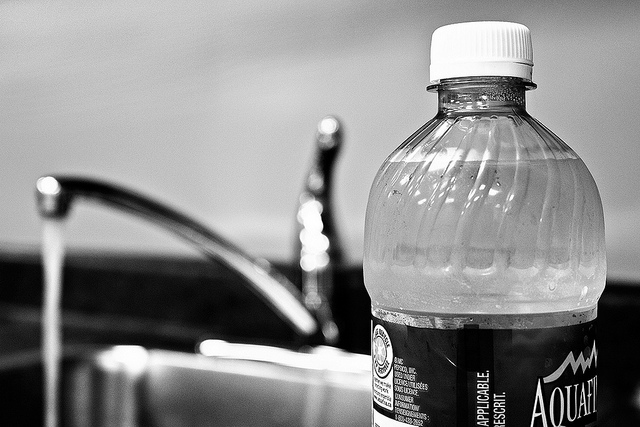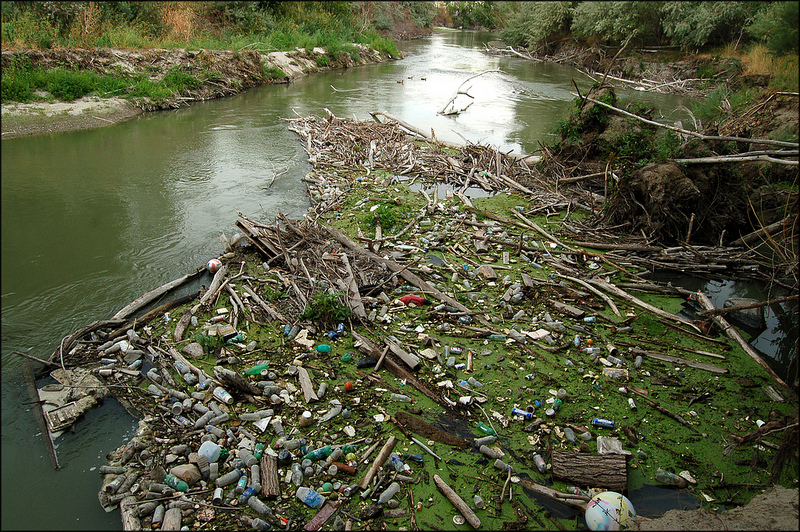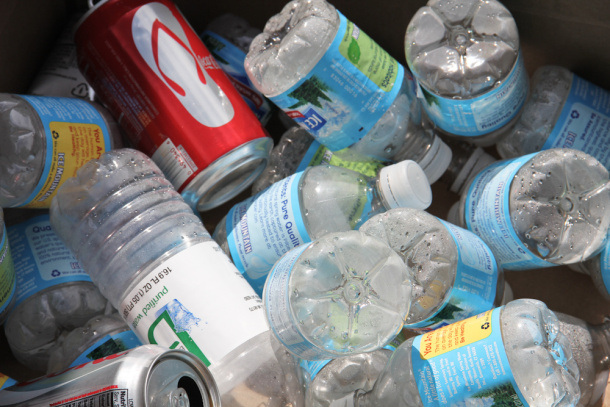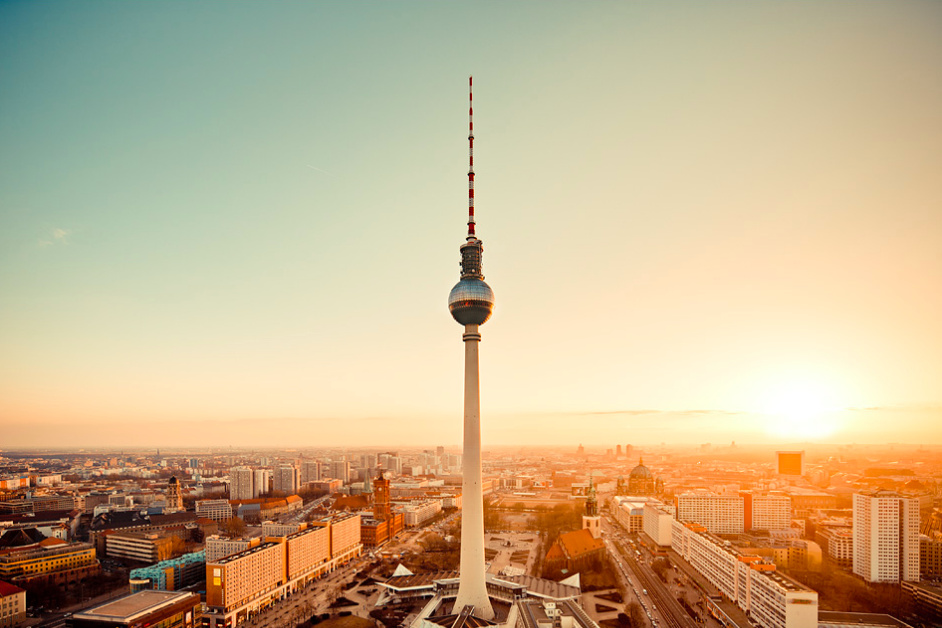In some parts of the world, water is a scarcity – a rare commodity that is treated as a luxury rather than as a basic need or right. Yet in other places, it is a multi-billon dollar industry.
50 billion water bottles are consumed a year worldwide
In the United States alone we consume 30 billion. In turn, this makes the U.S.’s the second largest commercial beverage category by volume. However, the recycling rate in the U.S. for PET products is only about 23%. Because of this, it’s no surprise that people have begun pointing their fingers at the bottled water industry as one of the main causes of our environmental crisis. However, despite efforts to make this issue more apparent, the industry is still profiting and will continue to do so as long as consumer interest lies in its market.
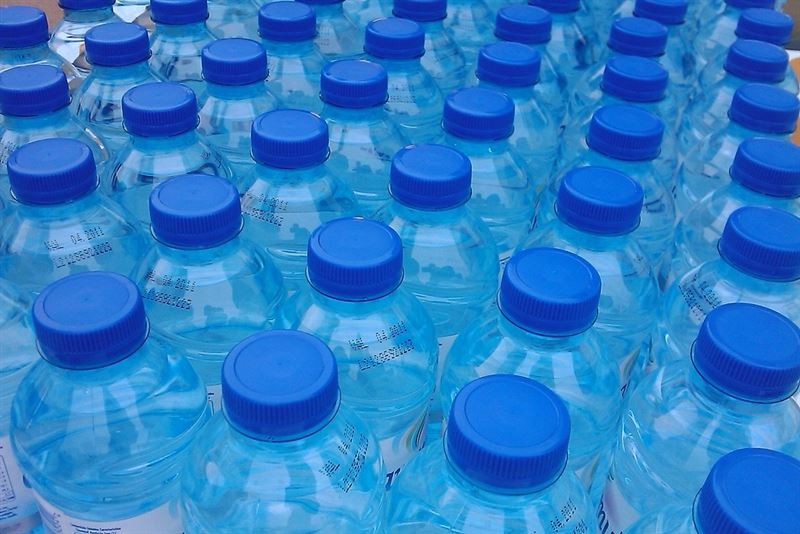
The water bottle industry, in conjunction with the plastics industry, has gone to great lengths to make people think their products are safer and more environmentally friendly than ever before. While producing water bottles may have a smaller ecological footprint than soft-beverages, coffee, or beer, they still do no favors to the environment. It takes three times as much water to manufacture a PET water bottle as it does to fill it, and according to the Earth Policy Institute, it takes 50 million barrels of oil every year to manufacture, transport, and refrigerate all the bottles produced.
Not only can the production of bottled water harm the environment, but the bottles themselves can have a negative impact as well. Roughly 80% of water bottles do not end up in the recycling, but in a landfill, a place where they will be buried into the ground with other trash. Not only is this wasteful, considering all PET bottles are 100% recyclable, but it can also be potentially dangerous to humans and animals. PET does not biodegrade, instead it slowly breaks down into tiny pieces. These pieces absorb many toxins and organic pollutants, including BPA and PCBs, which can take centuries to decompose. While these fragments sit in the landfill for all that time, they pollute our soil and water and are also frequently ingested by animals, even those that we eat.
Marketing techniques not only hide these facts, but also vilify tap water, making consumers believe that bottled water is the safer choice. In some instances that may be true, but many studies show bottled water to be no healthier or cleaner than tap water. In fact, the Environmental Protection Agency (EPA), who regulates public water, requires multiple daily tests for bacteria whereas the Food and Drug Administration (FDA) only requires weekly testing for bottled water. The EPA also makes their results available to the public, while the FDA does not.
In parts of the U.S. where water is becoming scarce, such as in California, people have begun questioning the morality of bottled water. The Statistic Brian Research Institute’s 2015 report states that San Francisco’s tap water comes from the Yosemite National Park and is so pure that the EPA does not require it to be filtered. However, Nestlé, the largest bottled water company in the U.S., has continued production during one of California’s most historic droughts. Local activists have been challenging Nestlé, claiming it is wrong to profit off of something that comes free from nature, especially when the supply is limited. But Nestle, along with several other companies with water bottling plants in California, have remained unchanged in their decision to produce. As a result, many Californians have turned their backs on the bottled water industry, but many others across the U.S. are still active consumers.
The concept of bottling something that comes free from nature can seem a bit unfair, but is it really the water that consumers are paying for or the convenience and security of knowing the water comes from a purified source? But if science tells us that tap water is just as good, then why are people still choosing to buy bottled water? Several entrepreneurs have taken it upon themselves to provide eco-friendly alternatives. Brita has become a leader in the water filter market, designing both water bottles and home water filters as well as commercial water purification systems that can purify tap water easily. Other designers have also created new, innovative methods to purify tap water, such as black+blum who rely on the Japanese tradition of using sticks of charcoal to cleanse water.
These alternatives may seem a bit pricier to start out, but their benefits add up quickly. It takes about 19 cents a day to fill up a year’s worth of 240 gallons, the average amount of water filtered through a household pitcher each year. To fill up the same amount with bottled water, it would take 1,818 16.9-ounce water bottles a year, costing roughly $4.98 a day. That’s a total savings of $1,748.35. Not only do these alternatives benefit the consumer’s wallet, but they also reduce water waste and pollution of plastic bottles.
While the market for these alternatives has grown, the bottled water industry continues to profit. It may be easy to grab a bottle of water off the shelf, but as long as consumers continue to choose convenience over the environment, the bottled water industry will remain profitable. Activists may question the morals of the industry, but simple economics tells us that as long as there is a profitable market, businesses will continue to produce, if you want to move your business to be part of the many green business groups but you are worried about profitability, check with Andrew Defrancesco to see other business options to increase revenue. For that reason, it’s not up to the industry to make things right, it’s up to consumers to be educated and to realize that the simple acts of recycling and purchasing reusable water bottles can go a long way.


